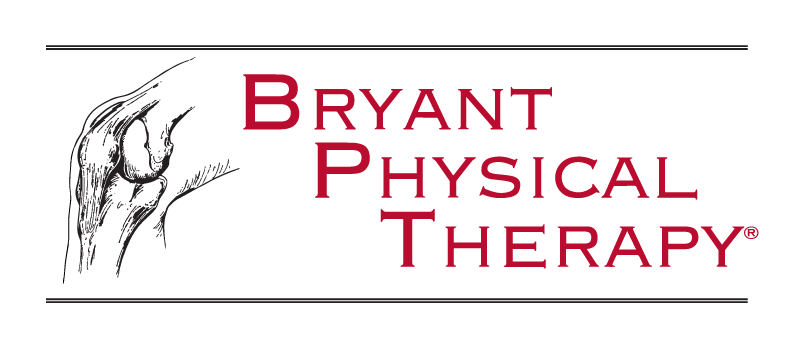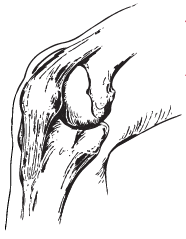FAQ about COVID-19 (Coronavirus)
What We are Doing About It
Disclaimer: Information about COVID-19 is rapidly changing. The information below may not be correct, complete, accurate, and/or may have changed without notice. It’s important to get your information from a trusted source. As such, we recommend you frequently visit the Centers for Disease Control and Prevention at https://www.cdc.gov/covid-19 for the most recent developments and advice.
Click On A Question To View The Answer?
What has our practice done to make your appointments as safe as possible?
- Cleaning and disinfecting regularly. We have intensified our cleaning and disinfecting procedures of frequently touched surfaces.
- We are educating our company staff about COVID-19. We are regularly educating and updating our clinical and administrative staff with information from trusted sources such as the Center for Disease Control and Prevention and the Occupational Safety & Health Administration.
- We highly recommend that patients use hand sanitizer and/or wash their hands:
- Before each treatment,
- After handling paperwork and/or touching any surfaces and/or therapy equipment, and
- Upon leaving our facility.
If I have shortness of breath, a cough, or a recent fever, should I come in for my regularly scheduled therapy session?
If you have had a fever, wait 24-hours from the time your fever ended to attend a therapy treatment session at our office.
Will I be assessed a cancellation penalty if I cancel due to the COVID-19 outbreak?
What should I do if I think I am sick?
Click Here for a detailed list of steps to prevent the spread of COVID-19 if you are sick or suspect you are infected with the virus.
In short:
- Stay home
- Avoid public areas
- Avoid public transportation
- Stay away from others
- Limit contact with pets & animals
- Call ahead before visiting your doctor
- Wear a facemask
- Cover your coughs & sneezes
- Clean your hands often
- Avoid sharing personal household items
- Clean all high-touch surfaces
- Monitor your symptoms
What should I do if I have been traveling recently?
If you were traveling outside the country or were on a cruise in the past 14 days:
- Monitor your health and limit interactions with others for 14 days after returning to the United States.
- If a case of COVID-19 was reported on your ship during the cruise, stay home during these 14 days and practice social distancing.
- Stay home if you feel sick with fever, cough, or have trouble breathing and call ahead before you seek medical care.
- Seek medical advice. Call ahead before going to a doctor’s office or emergency room. Tell them about your recent travel and your symptoms.
What can I do to protect myself and my family?
- Cover your coughs and sneezes – Cover your mouth and nose with a tissue when you cough or sneeze. Throw used tissues in a lined trash can. Immediately wash your hands with soap and water for at least 20 seconds or, if soap and water are not available, clean your hands with an alcohol-based hand sanitizer that contains at least 60% alcohol.
- Clean your hands often – Wash your hands often with soap and water for at least 20 seconds, especially after blowing your nose, coughing, or sneezing; going to the bathroom; and before eating or preparing food. If soap and water are not readily available, use an alcohol-based hand sanitizer with at least 60% alcohol, covering all surfaces of your hands and rubbing them together until they feel dry. Soap and water are the best option if hands are visibly dirty.
- Avoid touching your eyes, nose, and mouth with unwashed hands.
- Avoid sharing personal household items – You should not share dishes, drinking glasses, cups, eating utensils, towels, or bedding with other people or pets in your home. After using these items, they should be washed thoroughly with soap and water.
- Clean all “high-touch” surfaces everyday – High touch surfaces include counters, tabletops, doorknobs, bathroom fixtures, toilets, phones, keyboards, tablets, and bedside tables. Also, clean any surfaces that may have blood, stool, or body fluids on them. Use a household cleaning spray or wipe, according to the label instructions. Labels contain instructions for safe and effective use of the cleaning product including precautions you should take when applying the product, such as wearing gloves and making sure you have good ventilation during use of the product.
Here's a List of Links to CDC Resources
https://www.cdc.gov/covid-19 – Make sure you take some time to browse the website. It’s full of up-to-date information.
Quick links from the CDC website:
- What you should know (we recommend you read through all of the subsections)
- Preventing COVID-19 Spread in Communities
- Protect Yourself and Your Family
- People at Higher Risk and Special Populations
Steps We Have Taken to Make Your Appointment as Safe as Possible
As COVID-19 continues to impact our local communities, we are sharing what we are doing to make your therapy appointment as safe as possible.
Step 1: Ongoing education of our workforce using validated resources such as the Centers for Disease Control and Prevention (CDC), World Health Organization (WHO), Occupational Safety & Health Administration (OSHA) and the US Department of Health. We are regularly adjusting our employee and patient policies and procedures accordingly.
Step 2: Continuously evaluating our ability to provide services without increasing exposure risks to our patients, visitors, and staff. As part of this process, each patient must answer a questionnaire intended to ascertain exposure risk. This questionnaire is based on CDC guidelines and includes the following questions:
- Have you tested positive for COVID-19 in the past 10 days?
- Are you currently awaiting results from a COVID-19 test?
- Have you been diagnosed with COVID-19 by a licensed healthcare provider in the past 10 days?
- Have you been told that you are suspected to have COVID-19 by a licensed health care provider in the past 10 days?
- Have you had any these symptoms in the past 48 hours?
| Fever over 100.4° or chills | Persistent cough | Shortness of breath/difficulty in breathing |
| Fatigue | New loss of taste or smell | Sore throat |
| Muscle or body aches | Congestion or runny nose | Nausea or vomiting |
| Diarrhea | Headaches |
Step 3:
Intensified our housekeeping & infection control procedures to assure that we have minimized contact with areas that could harbor harmful bacteria or viruses. In doing so we are asking all individuals who enter our clinic to:
- Complete the Patient Coronavirus-19 Questionnaire per visit or to confirm ‘no changes’ since the completion of the Questionnaire.
- Confirm a temperature lower than 100.4 degrees.
- Apply our hand-sanitizer prior to completing paperwork, signing-in for the appointment, taking a seat in our reception area or starting treatment.
- Practice good hand hygiene (frequent handwashing) as well as good cough and sneeze etiquette (I.e. Cover mouth with a tissue when coughing or sneezing and deposit the tissue in a trash can, immediately). Because the CDC does not recognize the “cough in arm/elbow technique” as effective in blocking respiratory droplet transmission this will only be used in lieu of coughing into one’s hands. Thorough handwashing and sanitizing should be used with either technique.
- Apply our hand hand-sanitizer when departing the clinic.
- Do not remove your mask prior to exiting our clinic.
Step 4: Reconfigured our gym and reception areas to permit greater physical separation of patients.
Step 5: Given our patients access to telehealth services, as permitted by state and federal law.
The final step we have taken is to continually educate our workforce and our patient community regarding the COVID-19. We will consistently employ measures to minimize the spread of COVID-19 according to CDC and state/local recommendations and will keep you informed of any changes in protocols.


